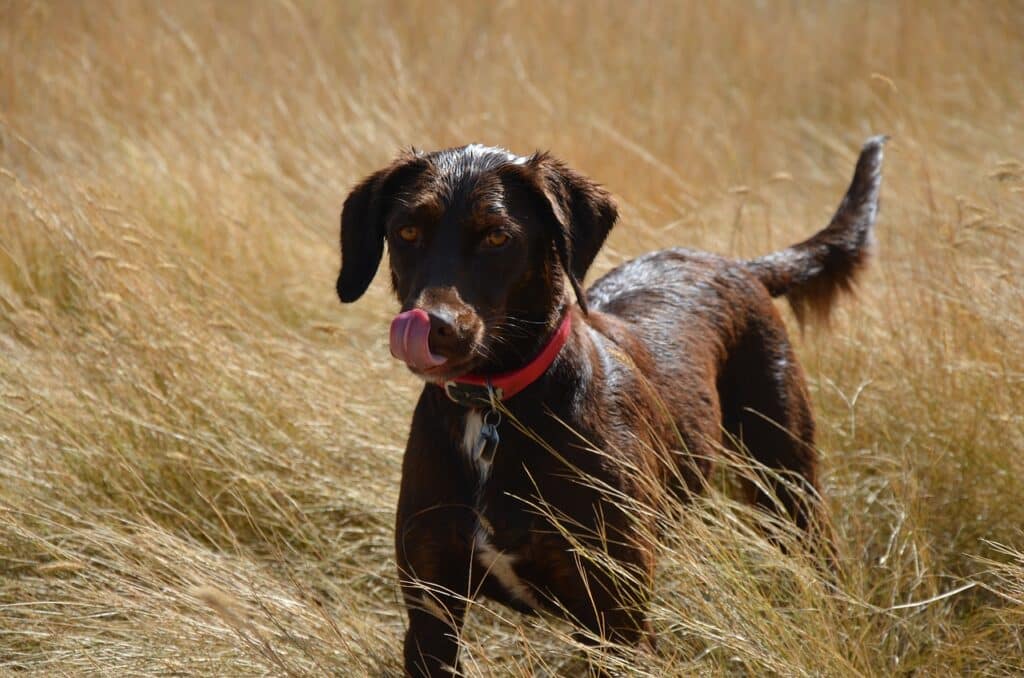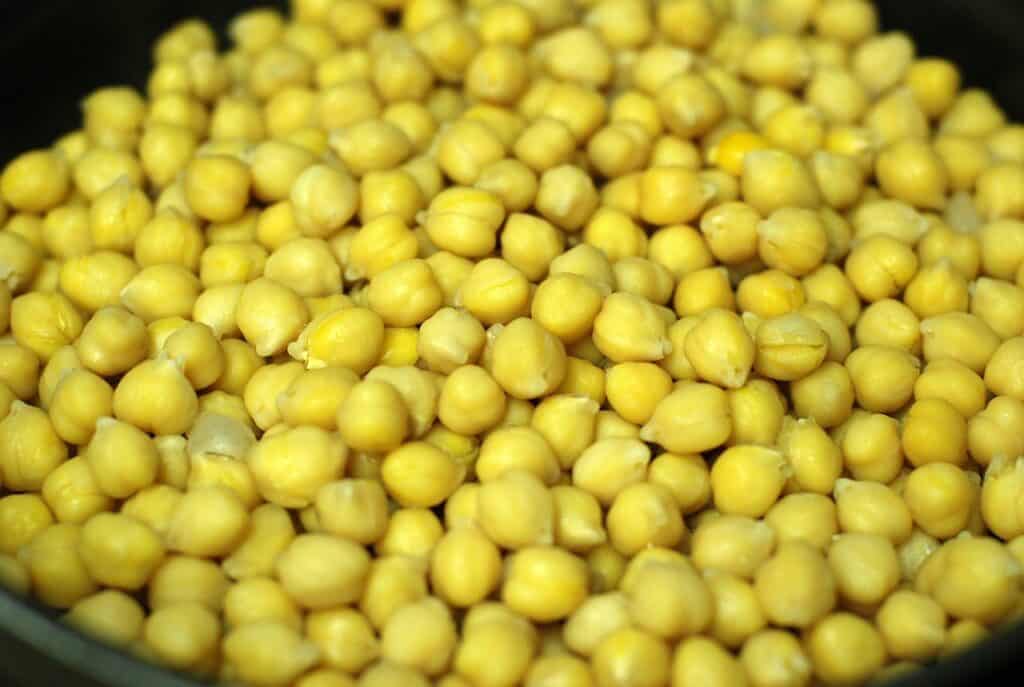It’s meal time for the family, and yellow beans are on the menu today.
Your four-legged friend is looking at you with big, hopeful eyes, and you’re wondering if it’s okay to share.
You know dogs love meat, but what about yellow beans?
Well, we are here to answer that question.
So, can dogs eat yellow beans?
Dogs can safely eat cooked yellow beans.
They are a great source of nutrients: proteins, fiber, and minerals, essential for your pup’s muscle development and effective digestion.
Feeding your dog yellow beans in moderation will be safer in inhibiting gastrointestinal problems.
In this post, we discuss everything you need to know about feeding your dog yellow beans, how to give them this nutritious treat, and some guidelines.
Read on for an elaborate approach.

How should I prepare my dog’s yellow beans?
Cook the beans thoroughly before serving them as providing raw or undercooked can cause digestion problems such as gas, bloating, and diarrhea.
Cooking also increases the beans’ palatability.
You can follow these simple steps while cooking yellow beans for your dog:
- Rinse the beans properly to eliminate present dirt or debris.
- Soak the beans in water for at least 4 hours or overnight to make them softer and easily digestible for your dog.
- Drain, then add fresh water to cook until soft. Use suitable ways to cook your dog’s yellow beans. Appropriate methods include boiling, pressure cooking, and under a slow cooker.
- Since salt can make the yellow beans harder to cook, add it later when the food “appears ready.” Excess salt intake in dogs can result in health problems such as pancreatitis, so add only a small amount.

Are yellow beans good for my dog?
Yellow beans are suitable for your dog as they provide essential nutrients.
When your canine friend consumes yellow beans, they are nourished with the following nutrients:
Proteins
Proteins are essential for your dog’s muscle development, repair, and maintenance.
They also help in the production of enzymes and hormones.
Fiber
Fiber helps regulate your dog’s digestion by adding bulk to their stool and promoting regular bowel movements.
It also keeps them feeling full for longer, which is ideal if your dog is trying to lose weight.
Minerals
Minerals like iron, copper, and magnesium are essential for your dog’s overall health.
They help produce red blood cells, support the immune system, and keep bones healthy.
Traces of vitamins (riboflavin, niacin, and vitamin B6)
Your dog needs these vitamins in small amounts for various processes like metabolism and energy production.
They also support the dog’s immune system by aiding in producing antibodies.
Are yellow beans better than other types for my dog?
There is no evidence that yellow beans are better for dogs than other types.
All beans contain similar nutrients and are beneficial for your dog’s health.
However, bean varieties might have different cooking times.
So, check the cooking time for the type you are feeding your dog.
Contact your veterinarian if unsure how to select and prepare whichever bean type for your pup.
Other suitable bean types that are equally healthy and nutritious for your dog include:
- Black beans – Are a good source of proteins, fiber, and minerals (copper & iron). They also contain traces of vitamins B6 and riboflavin.
- Lima beans – Good source of proteins, fiber, and minerals like magnesium, potassium, & zinc. They also contain traces of vitamins B1 and B6.
- Soybeans – Ideal for providing your dog with proteins, fiber, and minerals like iron, potassium, & calcium. They also contain traces of vitamins B1, B2, and B3.
- Green beans – Are a good source of vitamins (Vit A, C, K), fiber, and minerals like iron, calcium, & magnesium.
Can I give my dog canned yellow beans?
Canned yellow beans may not be toxic for your dog but aren’t recommended.
They contain a lot of sodium and other preservatives unsafe for your pup.
When your dog consumes sodium (especially in high amounts), it can lead to health problems such as dehydration, electrolyte imbalance, and pancreatitis.
So, it’s best to avoid feeding them canned yellow beans.
If you must feed your dog canned yellow beans, rinse them thoroughly to remove excess salt or preservatives.
Whenever possible, feed your dog fresh or cooked yellow beans that don’t contain added salt or preservatives.
This will ensure your furry friend gets all the nutrients they need without unwanted side effects.
It’s also not advisable to fry or add spices to your dog’s beans.
Frying will add unnecessary fats, while spices can cause gastrointestinal upsets.
Ingredients such as garlic and onions are toxic to dogs even in small amounts and should be avoided.
What are alternative plant proteins safe for my dog?
Other plant-based proteins are safe and healthy for your dog to consume.
If your pup is allergic to beans or you just want to include varieties, then great alternatives include:
- Peas – Are a good source of proteins, fiber, and vitamins (Vit A, C, & K). They also contain minerals like iron, copper, and magnesium.
- Chickpeas – These are a good source of proteins, fiber, and vitamins (B6 & folate). They also contain minerals like iron, copper, and magnesium, boosting your dog’s immunity.
- Lentils – Lentils are a good source of proteins, fiber, and vitamins B1, B3, & B6. They also contain minerals like iron, phosphorus, and potassium. Lentils are significant for their high levels of leucine which helps with muscle growth and repair.
- Quinoa – A good source of proteins, fiber, and vitamins (B1, B2, & B6). It’s also a complete protein, containing all nine essential amino acids your pup needs.
- Oats – Oats are a good source of proteins, fiber, vitamins (B1 & B2), and antioxidants. Their rich antioxidants will help to protect your dog’s cells from damage.
Frequently asked questions? (FAQs)
How much yellow beans should I feed my dog?
The amount of yellow beans you should feed your dog will depend on their size, age, and activity level.
As a general guide, adult dogs should consume about 1/2 to 1 cup of yellow beans in a day.
Puppies and senior dogs may need slightly less or more depending on their needs.
Can yellow beans be toxic to my dog?
No, yellow beans aren’t toxic to dogs.
However, it’s essential to cook them properly and avoid feeding your pup canned beans as they can contain high levels of sodium which can be harmful.
It’s also vital to provide your dog with yellow beans in moderation: as part of a nutritionally balanced diet.
What can I serve my dog yellow beans with?
You can serve yellow beans to your dog on their own or as part of a meal.
If you include them in a dish, pair them with other healthy ingredients such as lean meat, vegetables, and whole grains.
This will create a balanced meal that provides your pup with all the necessary nutrients.
Can yellow beans be my dog’s main food?
No, yellow beans shouldn’t be your dog’s main or only food source.
They need a balanced diet that includes proteins, fats, carbohydrates, vitamins, and minerals.
You can use yellow beans as an occasional treat or add them to your pup’s regular meals to boost their protein intake.
Conclusion
Yellow beans make for a healthy and nutritious treat for your furry friend.
Feed them in moderation as a supplement to your dog’s regular diet.
They are packed with essential nutrients significant for their overall health.
Cook the beans properly and avoid feeding canned yellow beans to minimize the risk of health problems.
Consult your veterinarian for further guidance on your dog’s nutrition and well-being.
- What Dog Breeds Have Pink Skin? - March 24, 2023
- What Are the Most Inspiring Dog Breeding Quotes? - March 20, 2023
- Can Pheromone Spray Help Improve Dog Breeding Results? - March 19, 2023








